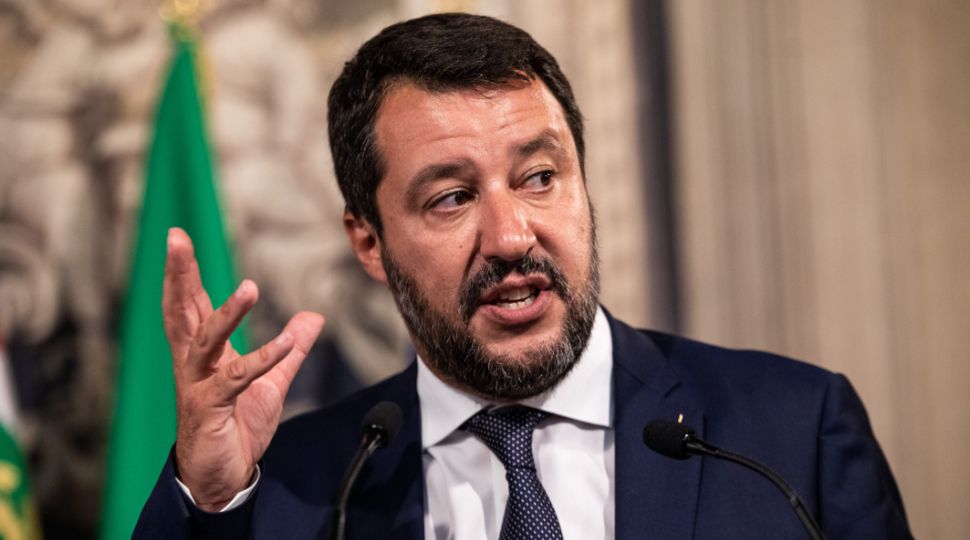
Anti-Crisis Policy
On 31 January, a state of emergency was proclaimed in Italy as a response to detection of the first case of coronavirus in the country. The government granted itself powers to manage healthcare, taking over from the regional authorities, and established an extraordinary commissioner for crisis management. On 23 February, when the number of infected people exceed 100, the right to public assembly and demonstration (including religious worship) was suspended all over the country. Some towns in the north of Italy, the epicentre of the pandemic in the country, became isolated areas called “red zones”. Subsequent decisions increased the number of such areas until, on 9 March, the entire country was designated a “the red zone”. As a result, movement of people has been limited, sports events have been suspended, and schools have been closed. Since 11 March, discotheques and restaurants have been closed. On 22 March, trade in products other than necessities was suspended.
Despite government actions, the number of infected people increased. The main reason was the high proportion of people in the Covid-19 high morbidity risk group in Italian society. Of the entire population, 29% are more than 60 years old, and medium age of 44.7 makes Italy the second oldest society in the world (the first is Japan). Simultaneously, media leaks before the announcement of restrictions, led to panic and the exodus of many people from the north of Italy to the south. Many of them were unaware that they were coronavirus carriers. Moreover, delaying restrictions on movement and doing business enabled people carrying the virus to continue visiting clubs and restaurants. By 25 March, almost 70,000 were infected and about 6,800 had died.
The government delayed restrictions because they were surprised by the scale of the pandemic and worried about its impact on economy. However, contrary to the government’s intentions, inaction led to increased costs incurred by the state and entrepreneurs. From 19 February to 12 March, the stock index in Milan decreased by 40%. In the period of 21 February to 18 March, the difference between rates on Italian and German bonds increased from 130 to 276 basis points. The increase in bond yields increased the cost of servicing Italian debt, which stands at 138% of GDP. The loss of the tourism sector, which generates 13% of GDP, is estimated to have cost at least €7.4 billion. The government created a fund of €25 billion to fight the pandemic and support companies and people affected by its economic consequences. The decrease of revenue and increase of costs will cause an increase of the 2020 budget deficit from 2.2% (planned in autumn) to at least 2.5% of GDP. Moreover, Italian GDP in 2020 will probably decrease by 10-15% compared to 2019.
European Policy
Italy was supported by EU institutions, but not by individual Member States. As a response to the Italian Agriculture Ministry, the European Commission (EC) extended by one-month deadlines for the submission of applications for direct payments to farmers within the common agriculture policy. The EC also accepted the Italian government’s request to liberalise its statement of fiscal discipline and increased the limit of state aid for companies from €200,000 to €500,000. Then, the EC announced the establishment of a fund of €37 billion to support the European economy against coronavirus. But the €2.3 billion earmarked for Italy is perceived by its government as insufficient. Italian expectations were fulfilled by the European Central Bank decision to allocate €720 billion to buy government and corporate bonds. Simultaneously, Prime Minister Giuseppe Conte postulated the issuance of special European bonds of €500 billion to finance the costs of fighting the pandemic. He also requested Eurozone countries to activate support for Italy via the European Stability Mechanism.
EU Member States ignored the Italian appeal in February to provide protective equipment for doctors, so the government had to buy 40 tonnes of this equipment from China and accept Russian support. Also in February, the government, worried about the condition of Italian exports (25% of GDP), asked neighbouring countries to not establish controls on its borders. The request was ignored by Austria and Switzerland. Restrictions on transborder movement were also established by Slovenia and France.
The Political Debate
The pandemic may lead to a crisis in Italy’s parliamentary coalition. Its stability is endangered by the disloyalty of Italia Viva, the party of former prime minister Matteo Renzi. He accuses the government of mistakes in crisis management policy, especially in social communication. Since its establishment a few days before the creation of the current coalition, the party has been combining support for and criticism of the government. The goal of Italia Viva is to win moderate voters who currently support the ruling parties and opposition.
The opposition tries to use the pandemic to take the power. According to polls from 21 March, Italian society is divided in its evaluation of Conte’s actions. Among the Italian public, 45% perceive the leader in a positive light and 52% give a negative response. Moreover, combined support for opposition parties (the League (32%), Fratelli D’Italia (FdI, 12%) and Forza Italia (FI, 5.5%) is higher than for the ruling coalition composed by the Five Star Movement (M5S, 14.5%), the Democratic Party (PD, 21%), Liberi e Uguali (2%) and Italia Viva (4%). The League and FdI accuse the government of indolence in establishing restrictions and insufficient support for companies affected by the crisis. They demand an early parliamentary election, straight after the end of the pandemic. However, they are unlikely to have the support of other parties, for whom such a move might not prove beneficial. Neither would it be compatible with the Italian tradition, according to which political crises are resolved by a change of the government within the framework of the sitting parliament (which is scheduled to end in 2023).
FI plays the role of constructive opposition. The party has the same position about anti-pandemic measures, but also demands joint solutions on the EU level and declares support for the government if it increase funds for fighting the pandemic to €70 billion. Improving relations with the government may be favourable for FI’s leader Silvio Berlusconi. Becoming a part of the government as a solution to a possible political crisis may give him more power than he would potentially gain in a 2023 election.
Conclusions
The spread of the pandemic increases the risk of long-term economic crisis in Italy. It’s scale, just like the overall costs of fighting coronavirus, are difficult to estimate. The introduction of efficient actions and further solicitation of EU aid will require support from a stable majority in parliament. For this reason, after the end of the pandemic, there is likely to be a change in the ruling coalition for a new one composed of M5S, PD and FI. An alternative solution is to co-opt Italia Viva politicians to the government. However, Renzi’s ambitions mean this would be unlikely to guarantee stability for the coalition.
The EU has to answer the question about the scope and nature of aid for Italy. On the one hand, because of European solidarity and the impact of the pandemic on the EU economy, there is a necessity to grant huge funds for fighting coronavirus and its economic consequences, as soon as possible. On the other hand, joint financing an increasing the debt of Southern European countries may generate some sense of injustice among the majority of Member States, which are maintaining budget discipline and a moderate level of public debt.
Because of mutual economic connections, the crisis in Italy will negatively affect the Polish economy. Italy is Poland’s fifth largest trade partner and 11th investment partner. However, the majority of aid programmes postulated by the Italian government are dedicated only to the Eurozone, what excludes Poland. Moreover, the costs of implementation may make EU Member States more likely to advocate for reduced spending on the cohesion policy and the common agriculture policy in the EU budget for the period of 2021 to 2027, and such funds are important to Poland.







